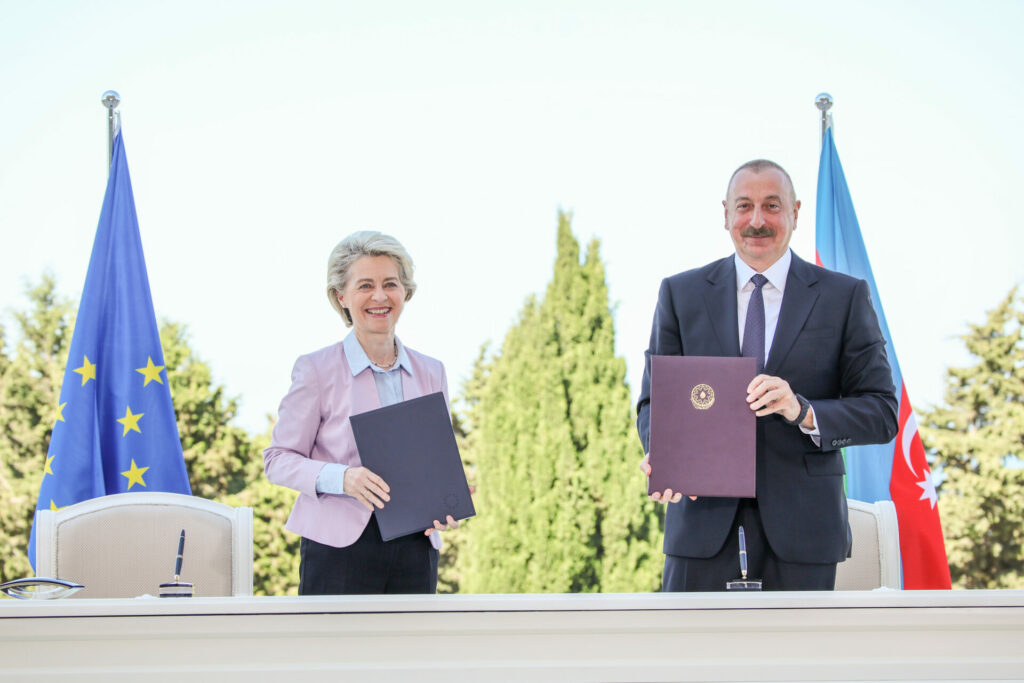During a visit to Azerbaijan, the President of the European Commission, Ursula von der Leyen, announced the conclusion of an agreement with the Caucasian nation to “double gas supplies” coming to the EU.
The plans are part of the Commission’s Southern Gas Corridor initiative, which links Caspian gas fields to Europe through Turkey. The gas deliveries are intended to help lessen the EU’s reliance on Russian energy imports, which are currently under Western sanctions following Russia’s invasion of Ukraine.
The former Soviet nation has been labelled by the Commission as a “trustworthy” energy supplier. European authorities intend to expand the existing corridor to help facilitate greater gas deliveries.
Specifically, the capacity of the network of pipelines connecting Caspian Sea gas to Europe will be increased to 12 billion cubic metres, up from 8.1 billion currently.
Von der Leyen told members of the press that they hoped to reach up to 20 billion cubic metres “within a few years.”
Related News
- Europe reluctantly looks to coal to get through the winter
- UK plans to cut off Belgium, EU from gas in crisis plan
The EU is racing to find new, reliable suppliers of natural gas as Russia turns off the tap on European gas supplies. Numerous EU Member States have already been cut off from Russian supplies over their refusal to pay for contracts in the Russian ruble.
“Issues of energy security today are more important than ever before,” said Azerbaijani President Ilham Aliyev. “Long-lasting, predictable, and very reliable cooperation between the EU and Azerbaijan, in the field of energy, is a big asset.”
A new memorandum of understanding has been signed between Baku and the European Union, outlining cooperation across the energy sector. The agreement includes provisions for developing Azerbaijan’s offshore wind and green hydrogen capacity, opening doors to Azerbaijan becoming a partner to the EU’s European Green Deal. Von der Leyen stated that the Caspian nation would evolve from a fossil fuel supplier to a “renewable energy partner.”
'Trustworthy partner'
Azerbaijan has often been criticised for its internal repression of dissidents, human rights defenders and journalists.
In 2020, Azerbaijan reignited its conflict with Armenia and attacked the disputed Nagorno-Karabakh region, mainly made up of ethnic Armenians, and annexed parts of the territory. A Russian-brokered ceasefire agreement ended the fighting, with Russian peacekeepers still patrolling the area today.

